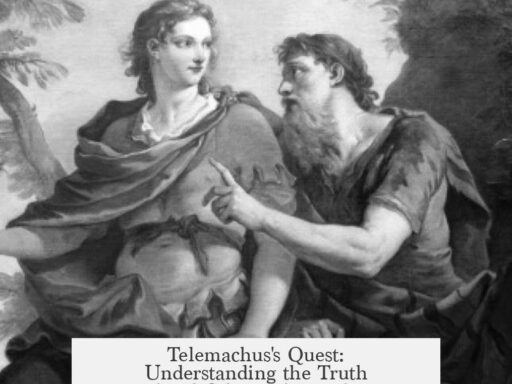A good book on the Magna Carta for a layperson is David Carpenter’s Magna Carta (2015), published by Penguin Classics. This book presents a clear, accessible introduction without oversimplifying the historical complexity.
Carpenter offers a thorough yet readable account of the Magna Carta’s origins and impact. His narrative balances scholarly insight with language suitable for non-specialists. This makes it ideal for those new to medieval legal history seeking reliable information.
Another strong choice is J.C. Holt’s Magna Carta (2015, 3rd edition, Cambridge University Press). Holt’s work is a classic study, revised to reflect recent scholarship. While detailed, it remains approachable for diligent readers aiming to understand the context and significance of the Magna Carta.
John Baker’s The Reinvention of Magna Carta 1216-1616 (2017, Cambridge University Press) explores how the document’s meaning evolved over centuries. This book suits readers interested in both the original charter and its long-term reinterpretations in legal and political history. Baker writes clearly, helping laypersons grasp complex ideas.
- These three books are recommended over popular or overly simplified versions, which often misrepresent the Magna Carta’s true historical role.
- They combine scholarly rigor with accessible prose to guide readers through medieval legal culture and the Magna Carta’s legacy.
- Each book highlights different aspects: Carpenter focuses on medieval context; Holt provides a comprehensive study; Baker covers the charter’s historical reinvention.
Key takeaways:
- David Carpenter’s Magna Carta offers a clear, accessible introduction.
- J.C. Holt’s edition provides detailed, readable scholarship suitable for lay readers.
- John Baker examines the Magna Carta’s evolving meaning over 400 years.
- These works are ideal for a reliable and manageable overview without oversimplification.
Looking for a Good Book on Magna Carta? Here Are Top Picks for a Layperson

If you’ve ever wondered, “Can you recommend a good book on the Magna Carta for a layperson?” – the answer is yes, with no need to dive into dusty academic tomes or legal jargon labyrinths. The Magna Carta, that legendary 1215 document shaking foundations of law and liberty, has plenty of accessible books tailored to curious non-experts. Let’s jump right into the best introductions that combine clarity, historical depth, and a dash of readable charm.
First Up: David Carpenter’s Magna Carta (2015, Penguin Classics)
David Carpenter nails the balance between scholarly insight and readability. This book comes from Penguin Classics, so you know it’s serious about being approachable. Carpenter unpacks the Magna Carta’s origins, its immediate impacts, and long-term legacy in a way that welcomes readers without prior medieval history knowledge.
Why is this a stellar start? Carpenter avoids drowning you in medieval Latin or dense footnotes. Instead, you’ll find crisp narrative sentences that feel like a guided story, not a history lecture. It’s perfect if you want to impress friends at trivia or grasp why this medieval charter still echoes in today’s laws.
Next: J.C. Holt’s Magna Carta (2015, Cambridge University Press, 3rd ed.)
John C. Holt’s work comes from the venerable Cambridge University Press and represents a classic introduction that’s been updated several times, reflecting fresh research. Holt’s book is a bit denser but still digestible for motivated readers. It delves into the political turmoil of King John’s reign and the forces that led barons to revolt, demanding rights that culminated in the Magna Carta.
Readers praise Holt for avoiding historical myths and clarifying misconceptions that pop up in popular culture. It’s like having a knowledgeable guide dispel legends and show you the real medieval drama behind the parchment.
Last but Not Least: John Baker’s The Reinvention of Magna Carta 1216-1616 (2017, Cambridge University Press)
If you’re curious about how the Magna Carta evolved in meaning and use after the original 1215 issuance, John Baker’s book shines. Rather than focusing solely on the birth of Magna Carta, it tells how subsequent generations refreshed its spirit. Baker shows how this charter transcended its medieval beginnings to become a symbol of liberty over four centuries.
This shift from history to legacy is what makes Baker’s book unique for lay readers intrigued not only by the document itself but by its powerful reinventions. The book teaches how historical documents gain new life with reinterpretations over time, a useful perspective when considering how history influences modern rights.
Why These Three? A Friendly Warning About Layperson Books

History can be a trap if you pick books based on flashy titles or internet hype. Pop or lay interpretations of the Magna Carta often contradict solid scholarship. Many popular renditions grossly oversimplify or romanticize the events — think of Magna Carta as a magic doughnut that instantly guaranteed freedom for everyone. Alas, not quite!
The recommended three books provide committed but manageable studies. They respect the complexity while staying accessible. So, if you’re ready to be diligent but don’t want a slog through legalese, these are your go-to reads. These selections avoid misleading novelties and stick to insightful narrative and facts.
What About More Advanced Reads?
If you find yourself hooked and want to go deeper (because hey, history can be addictive), there’s a trove of scholarly books:
- Sabapathy’s Officers and Accountability in Medieval England 1170-1300 offers detail about governance structures around Magna Carta’s era.
- Hudson’s The Oxford History of the Laws of England, volume II, 871-1216 explores legal developments leading to Magna Carta.
- Jahner’s Literature and Law in the Era of Magna Carta adds a literary viewpoint to historical laws.
These books are fascinating but certainly require more background knowledge or patience.
Why Read About Magna Carta at All?
Because it’s not just ancient parchment with faded ink. The Magna Carta is foundational to understanding modern legal systems. It signals the first real challenge to absolute monarchy and the rule of law principle. To read about it is to peer into the origins of rights we often take for granted.
Plus, having a good book on the Magna Carta means you’ll never be the awkward person at parties who mixes up the dates or the significance. You’ll get the facts straight and delivered in an engaging style that keeps you turning pages.
Tips for Enjoying These Books
- Set manageable reading goals. These books are rich but not impossible. A few pages a day keeps overwhelm away.
- Take notes or highlight. The Magna Carta has layers – it helps to jot down key points or questions that pop.
- Pair reading with podcasts or documentaries about medieval England. Multi-media learning deepens understanding.
Summing It Up
For a layperson seeking a thorough yet friendly introduction to Magna Carta, these three books stand out:
- David Carpenter’s Magna Carta (Penguin Classics) – clear and narrative-driven;
- J.C. Holt’s Magna Carta (Cambridge, 3rd ed.) – classic and myth-busting;
- John Baker’s The Reinvention of Magna Carta 1216-1616 (Cambridge) – exploring the charter’s evolving legacy.
These selections respect the Magna Carta’s historical complexities while remaining inviting. So, next time the conversation turns to “Who signed what and why?” you’ll confidently say, “Funny you should ask… I’ve got a great book recommendation!”
Which book on the Magna Carta is best for a beginner?
Carpenter’s 2015 book, Magna Carta (Penguin Classics), is an excellent choice. It offers clear and careful explanations for readers new to the topic.
Are there any other recommended accessible books on the Magna Carta?
Yes, Holt’s 2015 edition of Magna Carta (Cambridge University Press) is also well-suited for lay readers. It provides a detailed yet readable account.
What makes Baker’s The Reinvention of Magna Carta 1216-1616 suitable for laypeople?
Baker’s 2017 book explores the Magna Carta’s influence over time. It balances scholarly insight and approachable writing for a general audience.
Should I avoid popular or simplified accounts of the Magna Carta?
Yes. Popular or contrarian versions often misrepresent the facts. The three books recommended offer reliable and manageable introductions.
Do these books cover the historical context around Magna Carta?
All three books provide context and detail about the Magna Carta’s origins and impact. They help readers understand its historical significance clearly.




